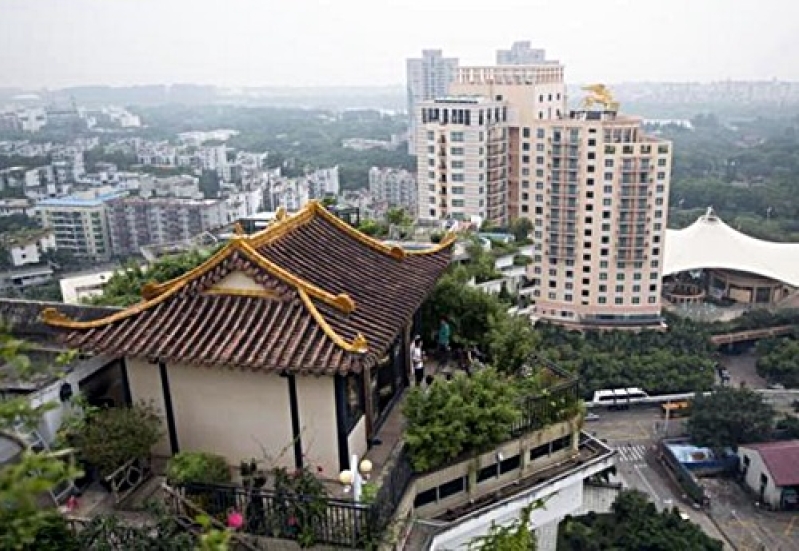
An elaborate temple-like structure atop a block of apartments southeastern China is an illegal hazard that should be torn down, residents say.
But they may not be as lucky as opponents of a similar rooftop display in Beijing that was built to resemble a mountain paradise, according to NBC News.
The temple, in Shenzhen -- a major city in the south of Southern China's Guangdong Province -- is believed to have been on the roof for about seven years. But complaints from its neighbors are in the spotlight after a case earlier his month, in which a Beijing was given 15 days to demolish this 88,600-square-foot house and garden built illegally.
Chen Jiatao, chairman of the complex’s housing management committee, said the temple's owner must resolve the matter by opening the space to other residents, but he seemed to hold out little hope, according to NBC News.
“I once spoke with the past chairman, who was here for seven years,” Chen told Reuters Television. “He said this to me: ‘Oh my, don't you know? This person is an official, he has friends in high places.’ So it's useless.”
Although the roof of the building in Shenzhen is supposed to be a public space, a fingerprint-activated lock stops others from accessing it, according to local media reports.
A disregard for laws and regulations by the rich and well-connected is a source of discontent among many Chinese.
The temple and isolated rooftop are also the subject of safety concerns. For residents on higher floors, the roof would be the main escape route in case of fire, while the added weight from the illegal structure could threaten the building's stability, media reports say.
Apartments in the building sell for around $4,900 per square meter and the rooftop itself is worth more than $2.45 million, according to the South China Morning Post.
According to christiantoday.com, in 2005, a new and controversial religious law came into effect. While the government claimed that the law will protect freedom of faith, critics are appearing among Chinese Christians in both Mainland China and Hong Kong.
At a lengthy 48 articles and seven chapters, the new Regulations on Religious Affairs will replace the old ones. They cover everything from how licensed organizations can accept religious donations and claim tax exemptions to how religious institutions may accept foreign students, among other topics. The State Council, which formulated the new rules, assured that they protect freedom of religion in China, according to christiantoday.com.
In response to the launch of the new religious law, AsiaNews, a Catholic-based newspaper, interviewed Anthony Lam, an expert on the Church in China at the Holy Spirit Study Centre, a research institute of the Diocese of Hong Kong. Lam analyzed that in fact the new religious laws do not seem to give more freedom to religions. In contrast, it can even be used as a way to persecute religious activities, as many Christians and human rights groups have suggested.







